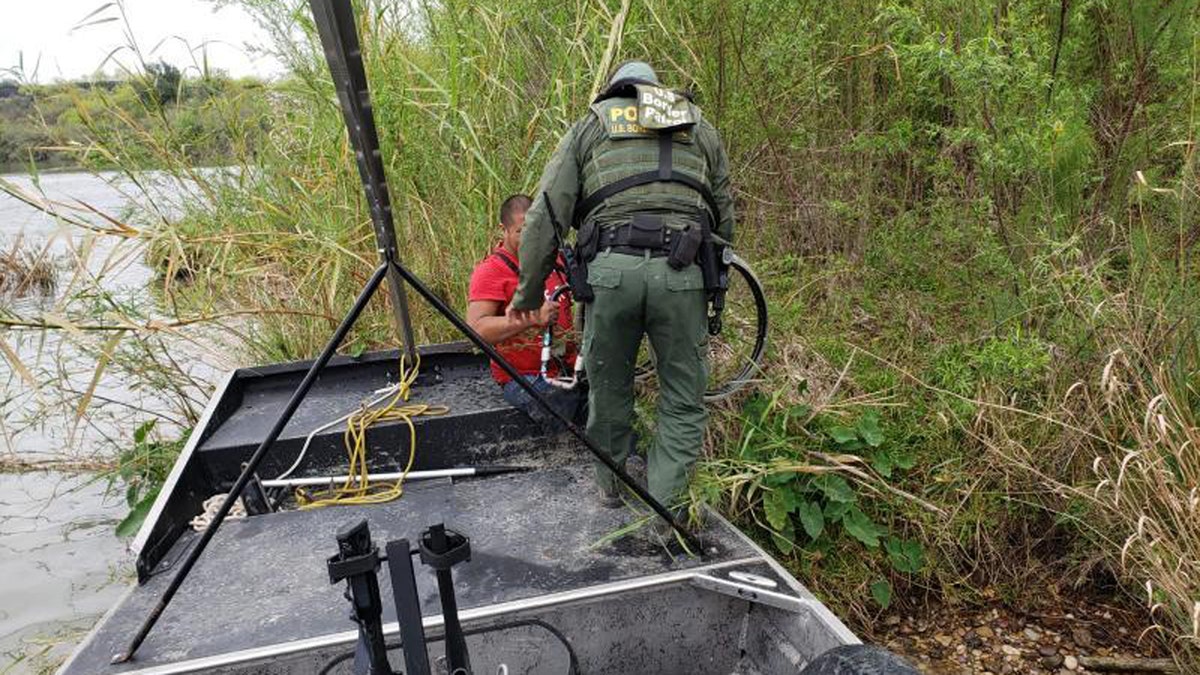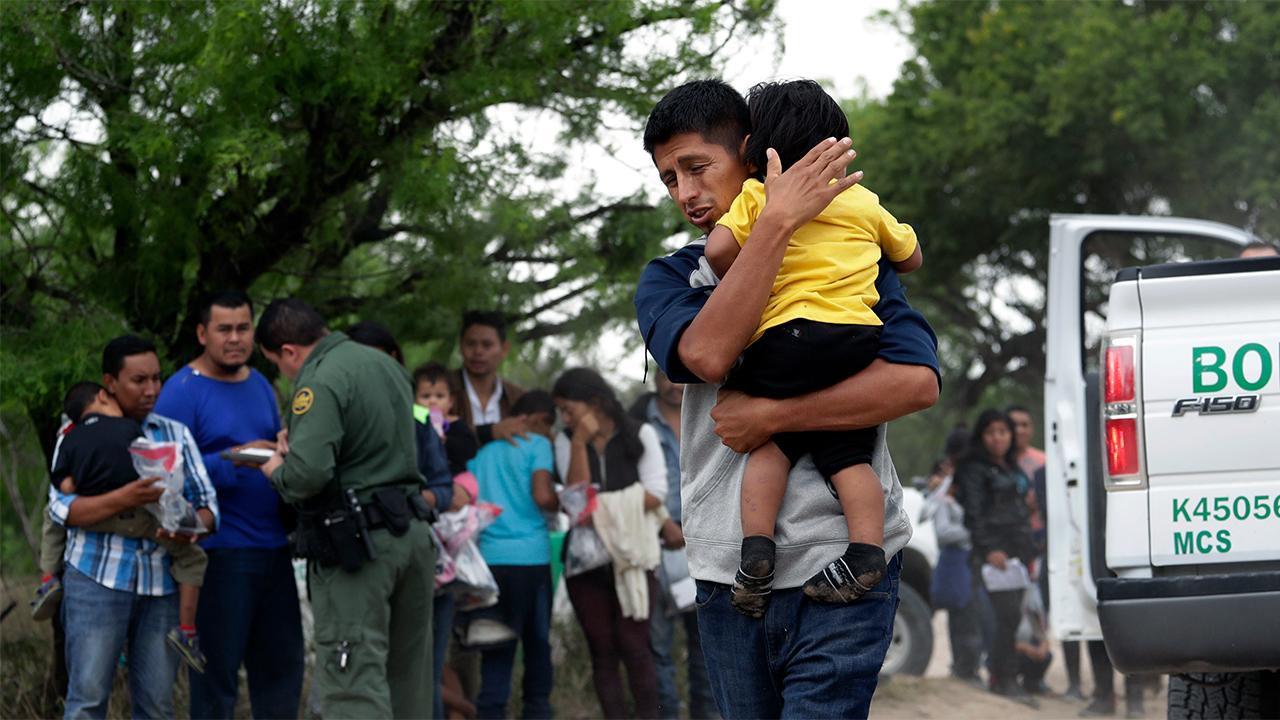
A double amputee from Guatemala was rescued an island in the middle of the Rio Grande River in Texas on Wednesday. (U.S. Customs and Border Protection)
A double-amputee was rescued by border patrol agents from an island on the Rio Grande River in Texas on Wednesday while he was trying to make his way into the U.S.
U.S. Customs and Border Protection said in a news release that U.S. Border Patrol Agents from the Eagle Pass Station marine unit saw the man in a wheelchair by himself on the island in the center of the river.
Agents went out to the island and identified the man as a 37-year-old Guatemalan. The man claimed he crossed to the island on his own, but was unable to continue the crossing.
Officials said the man was determined to be in the U.S. illegally and was assisted to the shore for medical attention and processing.
NEARLY 2,000 IMMIGRANTS TO BE RELEASED IN TEXAS FROM FEDERAL CUSTODY THIS WEEKEND, REPORT SAYS
“The current humanitarian crisis on the border is stressing our immigration system,” CBP Del Rio Sector Chief Patrol Agent Felix Chavez said in a statement. “Our stations and processing centers were never designed to handle the current demographics of families and medical cases that we are experiencing. Our agents treat each person with humanity and compassion while enforcing the immigration laws and protecting the country.”
The incident on Wednesday came after two other encounters with people this week who had special needs due to mental or physical limitations.
On Tuesday, officials said a 41-year-old Honduran male was apprehended crossing the Rio Grande. Agents quickly realized that he could neither hear nor speak, making communication a challenge, according to CBP.
CBP DEFENDS DECISION TO DETAIN GIRL, 9, FOR MORE THAN 30 HOURS DESPITE HER BEING US CITIZEN
The day before, a 36-year-old Honduran woman was arrested entering the United States illegally with her stepbrother.
"She was found to have a mental impairment that causes her to become agitated and inconsolable," the agency said. "The female was calmed by her stepbrother, so processing could be completed."
CLICK HERE FOR THE FOX NEWS APP
All those apprehended this week were offered and received medical attention, as appropriate, before being processed by federal authorities.










































